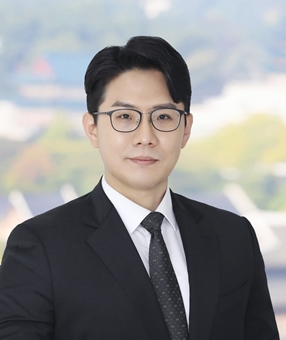On July 11, 2025, the IP High Court published its "Standard Procedures for Reviewing Civil Cases." The Standard Procedures contain detailed provisions regarding the parties' discussion on procedural matters, request for information, and hearing procedures, including 52 pages of forms relating to these topics, reflecting the objectives of recent amendments to the Civil Procedure Act and the Rules of Civil Procedure to streamline the appellate review process at the IP High Court and enhance focus on the substantive grounds for appeal.
The IP High Court (formerly known as the Patent Court) is the Korean intermediate appellate court with exclusive jurisdiction over most intellectual property infringement appeals in Korea. The Patent Court originally enacted its Manual for Appellate Examination of Infringement Actions on March 16, 2016, which applied to all appellate infringement proceedings at the court (see Summer/Fall 2016 IP Newsletter of Kim & Chang). The Manual was first amended on September 1, 2018 and renamed the "Patent Court Guidelines for Appeals of Civil Cases." The manual has been amended in its entirety this time after seven years and renamed as "Standard Procedures for Reviewing Civil Cases," which sets forth more detailed guidance on how the IP High Court should handle appellate infringement cases, including a number of detailed standardized forms for handling specific procedures.
Key amendments are as follows:
1. Determining whether the grounds for appeal are timely filed and sufficiently specific
The recent amendments to the Civil Procedure Act expand the court's dismissal authority to appeals of first instance judgments, and requires that anyone filing an appeal after March 1, 2025 must submit its reasons for appeal within 40 days of receiving notice that the court has received the record of the first instance proceedings (with one one-month extension which can be available if requested).
This amendment to the Civil Procedure Act is now reflected in the Standard Procedures. The Standard Procedures provide criteria for the grounds of appeal, and clarify that if the ground for appeal merely states generally that the lower court's decision misunderstood facts, misapprehended legal principles, lacked grounds, was based on inconsistent grounds, or was unreasonable, but fails to substantively specify the points of dispute in detail, it will not be considered a valid ground for appeal.
2. More emphasis and adherence to initial procedural agreements between the parties
Once the parties have both filed initial substantive briefs in the appeal, the IP High Court will decide whether the case is one in which (i) a preparatory hearing is necessary to discuss and establish procedures for the appeal, (ii) a hearing date can be immediately scheduled without a procedural discussion, or (iii) the case can be referred for early mediation proceedings.
Where a preparatory hearing is deemed necessary, the IP High Court will recommend that the parties voluntarily engage in discussions to agree on relevant procedures, or else will proceed to conduct a preparatory hearing to discuss such procedures. These discussions can include agreement on the number and date of hearings, as well as regarding "methods of submitting arguments and evidence" in the case, such as limits on the number of submissions allowed per hearing and in the litigation as a whole, deadlines for submitting arguments, and other issues such as whether to schedule a technology explanatory presentation session or Markman hearing with the court, or to appoint an expert to review specific issues. If the parties agree on particular deadlines for submissions, and one party submits an argument after an agreed deadline, the presiding judge may reject that party's submission. By specifying the details and methods of such procedural discussions and providing relevant forms to simplify these discussions, the Standard Procedures seek to ensure that the court can conduct trials in a prompt and faithful manner by focusing on the relevant substantive issues.
3. Clarification of procedures for handling requests for information
In a patent infringement lawsuit, the party claiming infringement may request the court to order the defendant to submit materials necessary either to prove infringement or to calculate the amount of damages, pursuant to the Patent Act. In the request, the claiming party must specify the materials requested, and show that the materials are necessary to prove infringement or calculate damages, and that the defendant indeed possesses these materials. The court then reviews the request for information, and in response to the request, the party from whom materials are requested may claim that such materials are its "trade secrets," and claim that they must not be disclosed to the other party. The Standard Procedures allow the court to more actively utilize orders to submit materials, even though the materials include trade secrets, in examining evidence in patent infringement cases where confidentiality order can be issued. For a request to submit materials under the Patent Act, the party requested to submit materials can assert "trade secrets," but must also show that it has justifiable reasons for not disclosing the requested materials to the other party or for minimizing the scope and content of what must be submitted, and the court can conduct in camera proceedings to review the materials and determine whether such "justifiable reasons" for non-production actually exist.
The Standard Procedures provide details on how such in camera proceedings should be conducted. For example, in camera proceedings are usually conducted ex parte between the court and the party from whom information is requested, and the Standard Procedures provide detailed instructions on how the review should be conducted. Interestingly, the Standard Procedures also expressly provide for inter partes in camera procedures, if the party subject to the request consents to participation by the requesting party. Since it seems highly unlikely that any party producing discovery would give such consent, it remains to be seen whether or how these procedures are implemented by the courts in practice.
In addition, to the extent not contrary to other provisions in the law, the above provisions apply mutatis mutandis to review of a request for (i) an order to submit materials necessary to calculate the amount of remuneration for an in-service invention (pursuant to the Invention Promotion Act), and (ii) an order to submit materials or documents necessary to calculate the amount of damages caused by infringement of trademark, design, or exclusive (licensing) rights, unfair competition, or trade secrets misappropriation (pursuant to the Trademark Act, the Design Protection Act, or the Unfair Competition Prevention and Trade Secret Protection Act), and thus may be flexibly used in all IP-related litigations.
The IP High Court's Standard Procedures for Reviewing Civil Cases have the purpose of giving parties to IP litigation greater predictability and making such proceedings more efficient, particularly by requiring greater specificity in the pleadings and issues discussed at litigation hearings. By requiring parties to agree on specific procedural details of conducting the appeal and narrowing down the scope of review to arguments submitted by the parties in accordance with the agreed procedures, the IP High Court is taking steps to prevent excessive delay in appellate IP proceedings. Parties to IP appeals in Korea will need to consider from the beginning how to clarify the relevant issues at an early stage in order to ensure their arguments on appeal are effectively heard.
It remains to be seen exactly how the IP High Court will apply these Standard Procedures to court proceedings in the future, since adjusting to more strict procedural rules for appellate litigation will likely take the IP High Court some time, and these new Procedures are a significant change to how appeals are currently handled. However, it is clear that these Standard Procedures are intended to make appeals in Korea more focused in their review of lower court decisions. Companies in IP disputes in Korea are advised to consult with legal experts well-prepared to apply the new appellate procedures before or in the course of appealing IP infringement actions in Korea.
Related Topics







